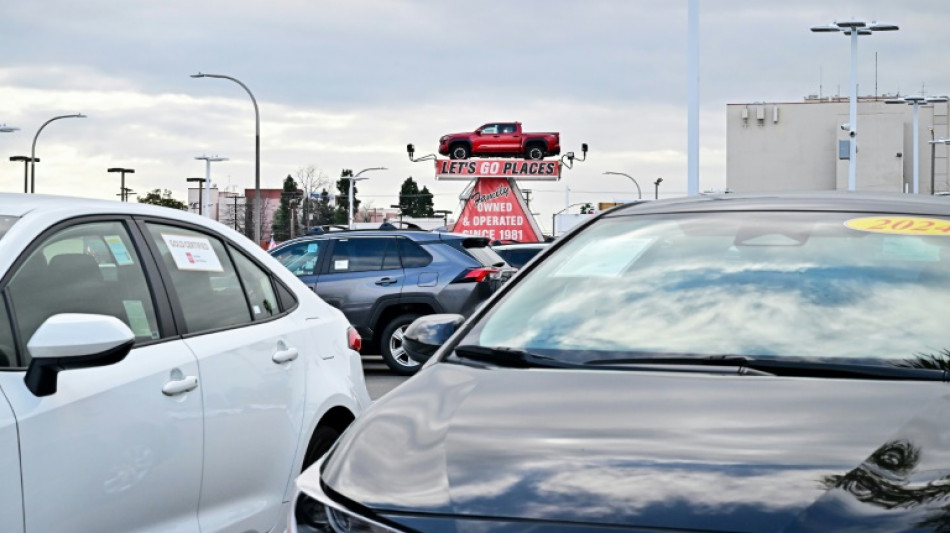
-
 Barca stay on Liga title track with Valladolid comeback
Barca stay on Liga title track with Valladolid comeback
-
Israel calls up tens of thousands of reservists for Gaza offensive

-
 Verstappen takes pole position for Miami Grand Prix
Verstappen takes pole position for Miami Grand Prix
-
Williams beats Trump to set up World Snooker final with Zhao

-
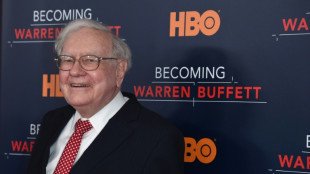 Warren Buffett to retire from Berkshire Hathaway by year's end
Warren Buffett to retire from Berkshire Hathaway by year's end
-
Barca battle back at Valladolid to preserve Liga title charge

-
 'Like a dream' says dominant Sabalenka after third Madrid title
'Like a dream' says dominant Sabalenka after third Madrid title
-
Napoli move step closer to Serie A crown after win at fiery Lecce

-
 Williams beats Trump to set up World Snooker final with Zhao Xintong
Williams beats Trump to set up World Snooker final with Zhao Xintong
-
Eurovision limbers up with over-60s disco

-
 'Surreal' Freeman hat-trick stuns Leinster to take Northampton into Champions Cup final
'Surreal' Freeman hat-trick stuns Leinster to take Northampton into Champions Cup final
-
Huge crowds head to Copacabana for free Lady Gaga concert
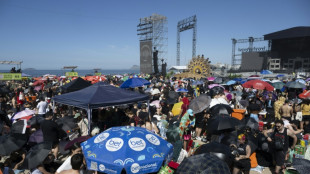
-
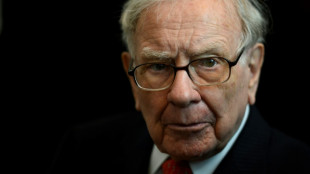 Warren Buffett: billionaire investor with simple tastes
Warren Buffett: billionaire investor with simple tastes
-
Serbian president out of hospital after cutting short US trip
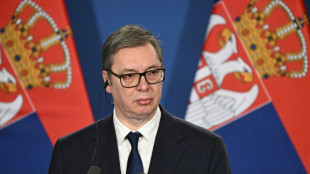
-
 Arsenal rocked by Bournemouth, Villa boost top five bid
Arsenal rocked by Bournemouth, Villa boost top five bid
-
Freeman hat-trick stuns Leinster to take Northampton into Champions Cup final

-
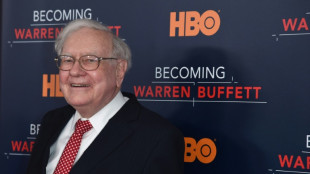 Warren Buffett says will retire from Berkshire Hathaway by year's end
Warren Buffett says will retire from Berkshire Hathaway by year's end
-
Al Ahli beat Kawasaki Frontale to win Asian Champions League

-
 Shepherd, Dayal edge Bengaluru past Chennai in IPL thriller
Shepherd, Dayal edge Bengaluru past Chennai in IPL thriller
-
Sabalenka beats Gauff to win third Madrid Open crown

-
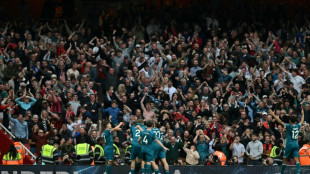 Arsenal suffer Bournemouth defeat ahead of PSG showdown
Arsenal suffer Bournemouth defeat ahead of PSG showdown
-
Napoli six clear in Serie A after win at fiery Lecce

-
 Van Nistelrooy glad as Leicester end goal drought against sorry Saints
Van Nistelrooy glad as Leicester end goal drought against sorry Saints
-
Meta fighting Nigerian fines, warns could shut Facebook, Instagram

-
 Hamas armed wing releases video of apparently injured Israeli hostage
Hamas armed wing releases video of apparently injured Israeli hostage
-
Norris wins wild and wet Miami GP sprint race
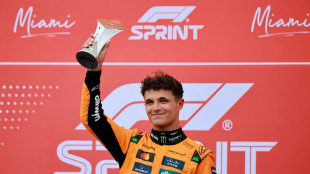
-
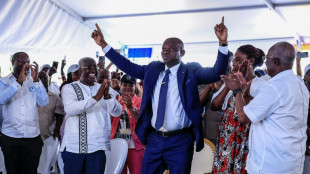 Gabon ex-junta chief Oligui sworn in after election win
Gabon ex-junta chief Oligui sworn in after election win
-
Singapore ruling party wins election in landslide
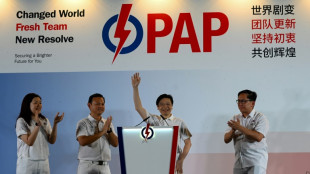
-
 Eurovision warms up with over-60s disco
Eurovision warms up with over-60s disco
-
Russell helps Bath beat Edinburgh in Challenge Cup semi-final

-
 Second-string PSG beaten by Strasbourg before Arsenal return leg
Second-string PSG beaten by Strasbourg before Arsenal return leg
-
Zelensky says won't play Putin 'games' with short truce

-
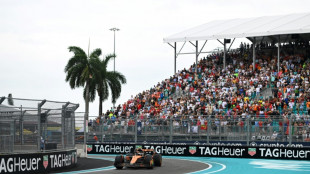 Norris wins Miami GP sprint race
Norris wins Miami GP sprint race
-
PM of Yemen government announces resignation
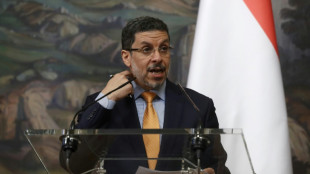
-
 South Africa bowler Rabada serving ban for positive drug test
South Africa bowler Rabada serving ban for positive drug test
-
Serbian president stable in hospital after cutting short US trip
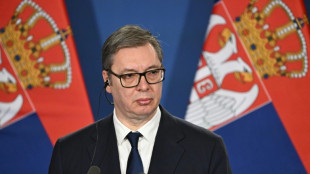
-
 UN envoy urges Israel to halt Syria attacks 'at once'
UN envoy urges Israel to halt Syria attacks 'at once'
-
Villa boost top five bid, Southampton beaten at Leicester

-
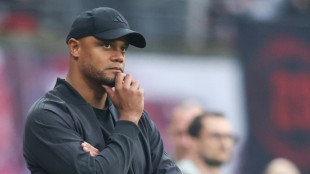 Leipzig put Bayern and Kane's title party on ice
Leipzig put Bayern and Kane's title party on ice
-
Serbian president hospitalised after cutting short US trip
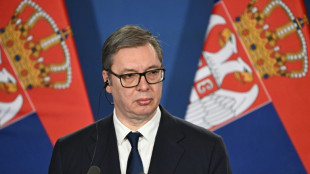
-
 Buick and Appleby rule again in English 2000 Guineas
Buick and Appleby rule again in English 2000 Guineas
-
Singapore ruling party headed for clear victory in test for new PM
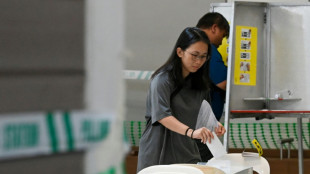
-
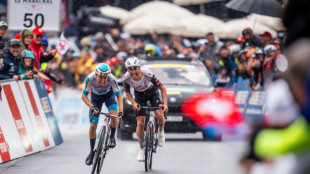 Martinez climbs into Tour de Romandie lead with penultimate stage win
Martinez climbs into Tour de Romandie lead with penultimate stage win
-
O'Sullivan backs Zhao Xintong to become snooker 'megastar'
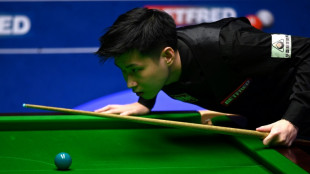
-
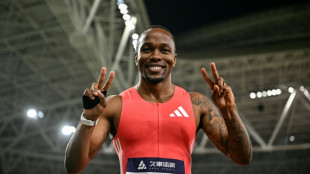 Simbine wins 100m in photo finish thriller as Duplantis dominates
Simbine wins 100m in photo finish thriller as Duplantis dominates
-
Atletico held at Alaves in dry Liga draw
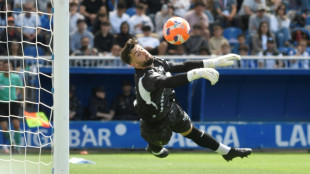
-
 Cardinals meet ahead of vote for new pope
Cardinals meet ahead of vote for new pope
-
Snooker star Zhao: from ban to cusp of Chinese sporting history

-
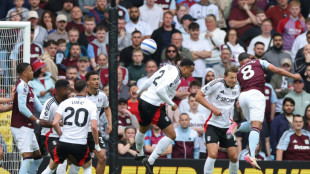 Tielemans keeps Villa in chase for Champions League place
Tielemans keeps Villa in chase for Champions League place
-
Anthony Albanese: Australia's dog-loving, Tory fighting PM
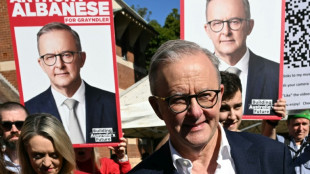

Carmakers face doubts and jolts over US tariffs
Raise prices or cut into their margins, open or close factories: carmakers must soon make major decisions as the United States imposes stiff tariffs on imported vehicles.
The 25-percent tariffs that the administration of President Donald Trump is imposing as of April 3 will apply to cars and car parts not manufactured in the United States.
But all carmakers will be impacted, as even US automakers import foreign parts and manufacture vehicles for the US market in neighbouring Canada and Mexico.
The Bank of America estimates that the tariffs will apply to 7.3 million vehicles, or eight percent of global sales, and will expose carmakers to added costs and chaos.
- Taking stock -
One, albeit temporary, strategy to cope with the new tariffs is to avoid them by shipping as many vehicles as possible to the United States before they come into force.
"Shipments have expanded quite a bit to absorb the first shock" of the tariffs, said Fitch Ratings Director Cigdem Cerit.
"Everyone did build a little buffer," she added.
South Korea's Hyundai was among the automakers that most built up its stock of cars, according to Cox Automotive, an automotive services firm. Meanwhile, Stellantis ate into its ample stocks that had weighed on results in previous quarters.
But the stocks will likely last no more than a few weeks, especially if Americans rush to dealers to snap up any remaining deals.
"After an initial, short surge in buying, we expect vehicle sales to fall, new and used prices to increase, and some models to be eliminated if tariffs persist," said Jonathan Smoke, chief economist at Cox Automotive.
- Sticker shock -
It is an open question about how much car prices will rise and to what extent sales will fall.
The Bank of America estimates that US vehicle prices would rise by approximately $10,000 if manufacturers fully pass on the cost of tariffs and maintain their profit margins.
"However, we don't expect consumers would absorb the price increase in full," said analysts at the bank.
Carmakers "are more likely to sell vehicles at breakeven until they rebalance the production footprint," it said, estimating that US consumers would see price hikes of around $4,500.
Mid-range imported vehicles are likely to feel the pinch, such as the Chevrolet Silverado pick-up and the Toyota Rav4 SUV.
But even manufacturers like Porsche could have trouble passing on the cost of tariffs on low-end models like its Macan SUV, said Fitch's Cerit.
Ferrari was the first carmaker to announce a hike in prices -- as much as 10 percent -- on vehicles sold in the United States, its top market.
A major question is whether consumers continue to buy the same vehicles at a higher price, said Deloitte auto analyst Guillaume Crunelle.
He believes that is unlikely as "people buy in the price bracket that corresponds with their means".
- Made in the USA -
Donald Trump has stated that the goal of the tariffs is to encourage manufacturing jobs to return to the United States, but it is unclear whether that will be achieved.
Crunelle said companies will ask themselves: "Is it more competitive to manufacture in the United States, with a weaker market, or to pay customs duties?"
US manufacturers are still hoping that tariffs will be reduced on vehicles imported from Canada and Mexico, where they have numerous factories.
"Manufacturers have need for certainty," said automotive sector analyst Sebastien Amichi at the consulting firm Kearney.
Hyundai and Stellantis have announced the opening or reopening of factories since Trump's November re-election.
But such moves take time: up to several years to bring a factory online. And suppliers, which are also in a weak position due to the switch to electric vehicles, must also follow manufacturers.
European and Japanese carmakers that play Trump's game face a double cost according to Deloitte's Crunelle: in addition to building new factories they have to pay the costs of laying off workforces at home.
Some may refuse to have their arms twisted into manufacturing in the United States.
"I'll bet that certain manufacturers will prefer to reduce their production costs" at home rather than set up in the United States, Crunelle said.
F.Stadler--VB

